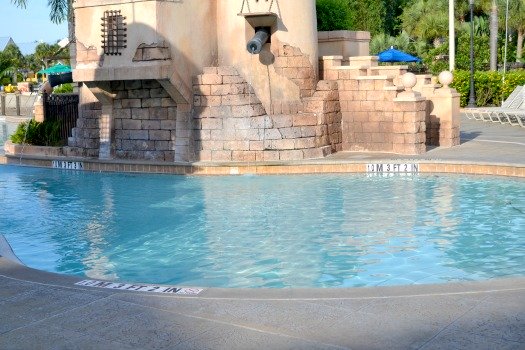Pool Maintenance Made Easy
S Scott's Pool Service
Stuart, Hobe Sound, Palm City
Port St. Lucie, FL
For Local Pool Service
772-634-3037
Salt water Pool Maintenance
Salt water pool maintenance is easy and affordable. I am a swimming pool professional and have been keeping my customers’ salt pools looking sparkling blue for years. There are some advantages and disadvantages to owning a salt system in your pool. I will cover everything you need to know about salt water swimming pool maintenance on this page.
Let’s uncover some myths about salt water pools
· I’m allergic to chlorine so I should get a salt water pool!
Not true!!! Salt Pools use salt chlorine generators. Basically, you pour pool grade salt into your pool water. The salt chlorinator converts the salt into chlorine. Yes, the same exact chlorine that you pour into a pool.
· A salt pool is easier to maintain because it cost less and you don’t have to add any chemicals.
Not exactly true either. Although you won’t have to go to your pool supply store for jugs of liquid chlorine, you will still need to add all of the other chemicals to balance your pool water. Other pool chemicals needed.
Instead of adding liquid chlorine you will be adding bags of pool salt to maintain a proper salt level for the chlorinator to work properly.
· Do salt water pools make your skin feel soft?
The amount of salt in a salt pool is much less than ocean water. In fact, the water doesn’t even taste salty at all. The majority of my salt pool customers tell me that their skin does feel softer with a salt water pool.
How does a salt chlorine generator work?
A salt chlorine generator is installed into the pool pluming near the pool equipment. Most salt systems are about 15” long and can be easily added to your current system. The generator converts the salt from your pool water into chlorine as the water flows through. Each salt generator comes with either a control panel on the generator on as a separate box. This will allow you to control the amount of chlorine production your pool will need.
Salt Water Pool Maintenance
· You will still need to check pool chlorine levels on a regular basis. Even with a salt system, chlorine levels need to be monitored and adjusted regularly. A chlorine generator does not know when chlorine is too high or too low, it only knows how to produce.
· You will need to purchase a salt measuring device. There are inexpensive paper strips available for measuring salt levels in pool water but I find them to be a little inaccurate.
Salt chlorinators only operate at ideal levels of salt. If you add too much salt to your pool water, the chlorinator will shut off. If salt levels get too low, the chlorinator won’t work at all because there isn’t enough salt in the water to convert.
What do I do if my Salt Chlorine Generator stops working?
If your salt system stops working you will need to take manual action with your swimming pool.
If you ever test your pool water for chlorine and you get a zero reading then you will need to chlorinate with an alternative method. Liquid chlorine or chlorine tablets should keep your pool looking good until the chlorine generator can be repaired. Treat your pool as if you don’t have a salt water pool.
Salt Water Pool Maintenance Tip:
With all salt chlorinators, PLEASE REMEMBER…If your pool pump is not running, you will not be generating chlorine with your salt system. You cannot have the pool timer run for 1-2 hours a day and expect the salt chlorine generator to produce enough chlorine to sanitize your swimming pool.
If any part of your pool equipment breaks and is out of service for more than a few days, you will need to supplement your salt pool with another type of chlorination.
You can also find many helpful videos online about salt water pool maintenance.
